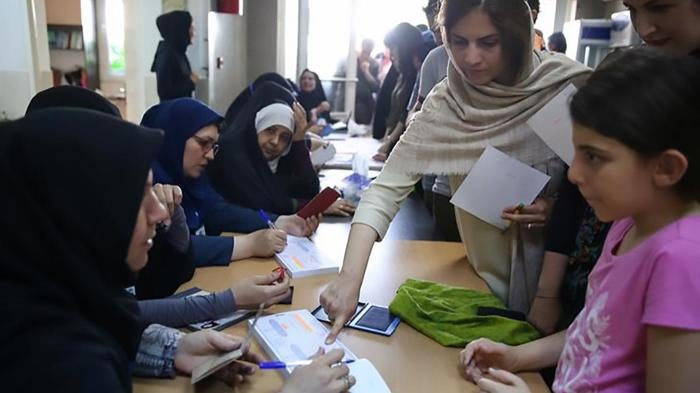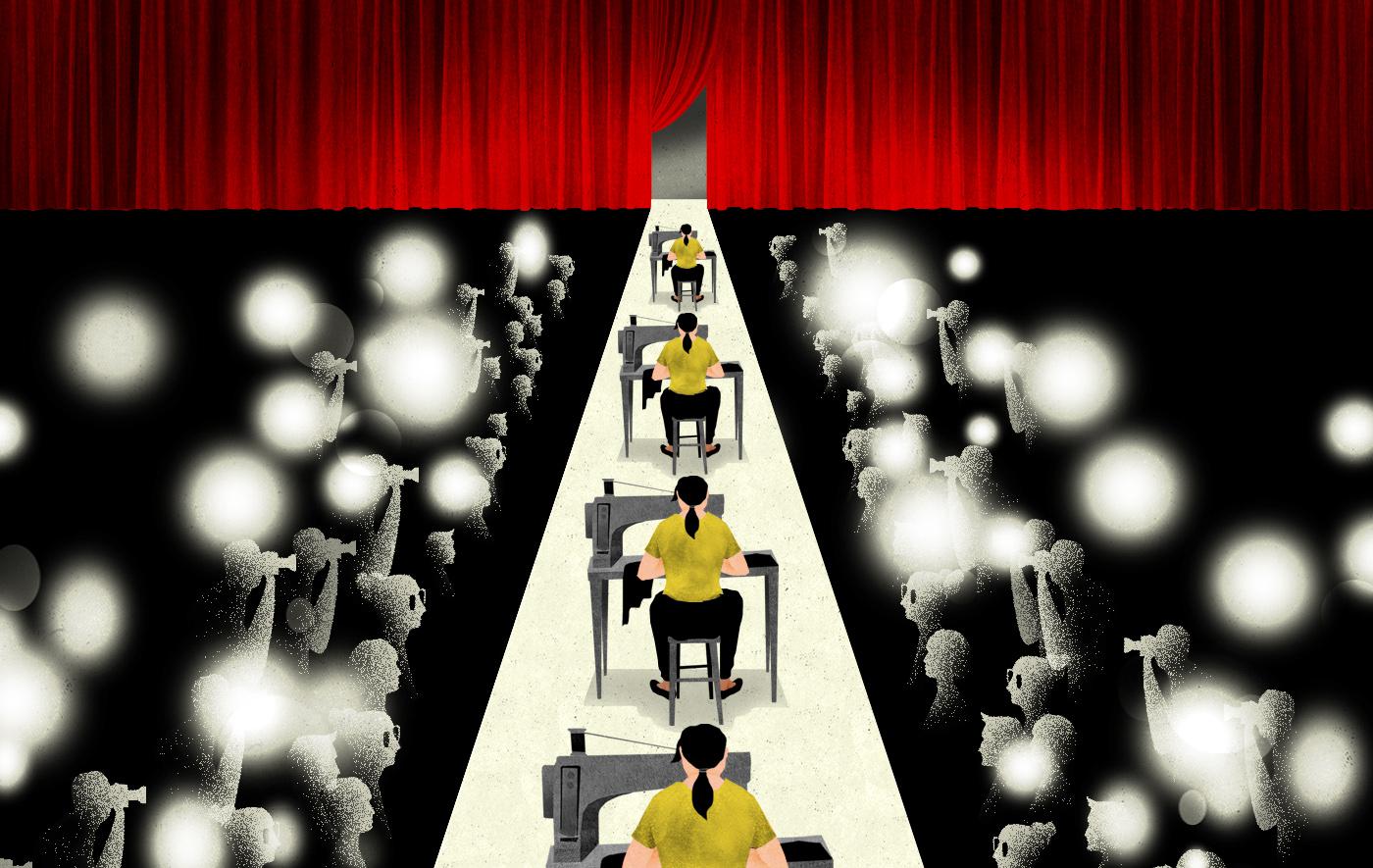President Hassan Rouhani secured a second four-year term in office in May 2017, in an election marked by debate over the state of civil and political rights in Iran. Executions, especially for drug-related offenses, continued at a high rate. Authorities in the security apparatus and Iran’s judiciary continued to target journalists, online media activists, and human rights defenders in an ongoing crackdown, in blatant disregard of international and domestic legal standards.
Death Penalty
The judiciary continued to execute individuals at a high rate, particularly for drug offenses. Human rights groups reported that Iran executed at least 476 individuals as of November 27, 2017, including five individuals who were sentenced to death for crimes they allegedly committed as children.
On August 13, the Iranian parliament approved a long-awaited amendment to the country’s drug law that significantly raises the bar for a mandatory death sentence for drug-related offenses. The Guardian Council, a body of 12 Islamic jurists, approved the amendment in October and the law went to force on November 14. On Novemrber 21, Abbas Jafari Dolatabadi, Prosecutor of Tehran , stated that 3,300 individuals convicted of drug offenses have filed appeals under the new law.
Under Iran’s penal code that went into force in 2013, judges can use their discretion not to sentence children to death. However, a number of individuals who were retried under this provision for crimes they allegedly committed as children have been sentenced to death anyway.
Iranian law considers acts such as “insulting the prophet,” apostasy, same-sex relations, adultery, and certain non-violent drug-related offenses as crimes punishable by death. On August 28, Mahmoud Alizadeh Tababi, the lawyer of Mohammadi Ali Taheri, a spiritual teacher and the founder of the spiritual group of Erfan-e-Halghe (Circle of Mysticism), announced that his client was sentenced to death for the second time on a charge of “sowing corruption on earth.” Previously, in 2011, a revolutionary court had sentenced Taheri to five years in prison, but in 2015 tried him again for corruption on earth and sentenced him to death. The ruling was rejected by the supreme court in 2016.
Due Process Rights and Treatment of Prisoners
Iranian courts, and particularly the revolutionary courts, regularly fell short of providing fair trials and used confessions obtained under torture as evidence in court. Authorities routinely restrict detainees’ access to legal counsel, particularly during the investigation period.
Several individuals charged with national security crimes suffered from a lack of adequate access to medical care in detention. In August, authorities refused to allow for the hospitalization of Arash Sadeghi, a 30-year-old human rights defender, who suffers from digestive complications following his long-term hunger strike in February. Zeinab Jalalian, a Kurdish prisoner who is serving a life in prison sentence in Khoy prison in West Azarbaijan province, is reportedly in urgent need of medical treatment for her eye. In 2017, several political prisoners in Rajai Shahr and Evin prisons, including Saeed Shirzad, a child rights activist, embarked on a hunger strike to protest their prison conditions.
Freedoms of Expression, Association and Assembly
On December 19, 2016, President Rouhani announced the Charter on Citizens’ Rights, which largely reiterated rights and protections that already exist in the constitution and domestic law. In the absence of a mechanism for enforcement, however, it is unclear whether the Charter will add real protections.
Authorities continued to restrict freedoms of expression, association and assembly and prosecuted dozens of journalists, online media activists, and trade unionists on charges of “acting against national security,” “propaganda against the state,” and “assembly and collusion to disrupt national security,” merely for exercising their legitimate rights.
On August 29, Ali Mojtahedzadeh, the lawyer of six administrators of channels on the social media application Telegram who were close to reformists arrested before the May presidential elections, told Ilna news agency that Branch 15 of Tehran’s revolutionary court had sentenced his clients to three to five years in prison.
In March, the Intelligence Ministry arrested journalists Hengameh Shahidi and Zeinab Karmianian and detained them for nearly five months. They were released on August 29.
Authorities from the Judiciary Intelligence Agency arrested Sasan Aghaei, 34, deputy editor of the reformist daily Etemad, and Yaghma Fashkhami, a journalist for the Didban Iran website, at their offices in Tehran on August 13 and 22, respectively. As of November, authorities have not charged either individual with a recognizable crime.
Authorities sent back to prison several prominent trade unionists whom they had sentenced to prison for peaceful activities but later released. Authorities arrested Ismael Abdi, the Secretary General of the Teachers’ Union, and Mahmoud Beheshti Langeroudi, the Union’s Spokesperson, on June 7 and September 13, respectively, while they were out on furlough. On August 9, Reza Shahabi, a prominent labor activist, returned to prison to serve the remainder of his six-year prison sentence in order to prevent the judiciary from seizing his bail. Shahabi had been released on medical grounds in May 2014.
Human Rights Defenders and Political Prisoners
Scores of human rights defenders and political activists remain behind bars for their peaceful activism. Atena Daemi, a child rights activist, is still serving a seven year prison sentence from November 2016 for peaceful activism. Abdolfatah Soltani, a prominent human rights lawyer who has been in prison since 2011, is serving a 13-year prison sentence for his human rights work, including co-founding the Defenders of Human Rights Center. Zia Nabavi, a student activist, is serving a 10-year prison sentence in Karoon prison in the city of Ahvaz.
On March 16, Narges Mohammadi, a prominent human rights defender who was arrested in June 2015 to serve the remainder of her six-year prison sentence, began serving a new sentence of 10 years in prison on charges including “membership in the banned campaign of Step by Step to Stop the Death Penalty.”
Over the past three years, authorities have prosecuted, on charges of cooperating with foreign states, several Iranian dual nationals and foreign nationals who have traveled to Iran. These include Siamak Namazi, a businessman, and his 81-year-old father Baquer, as well as Nazanin Zaghari Radcliffe, Nizar Zakka, and Xiyue Wang.
Former presidential election candidates Mehdi Karroubi and Mir Hossein Mousavi, as well as Mousavi’s wife Zahra Rahnavard, who is a scholar, have remained under house arrest without charge or trial since February 2011. Their families have reported that the health of all three has deteriorated and that they have been denied access to adequate healthcare.
Women’s Rights
Iranian women face discrimination in personal status matters related to marriage, divorce, inheritance, and child custody. A virgin woman needs her male guardian’s approval for marriage regardless of her age, and Iranian women cannot pass on their nationality to their foreign-born spouses or their children. A married woman may not obtain a passport or travel outside the country without the written permission of her husband. Under the civil code, a husband is accorded the right to choose the place of living and can prevent his wife from having certain occupations if he deems them against “family values.”
In 2017, Human Rights Watch documented how in this discriminatory environment, and in the face of government policies that do not afford adequate protection against discrimination in the public and private sectors, women are marginalized in the economy, constituting only 16 percent of the workforce. The rate of unemployment for women is 20 percent, twice that of men.
During his reelection campaign, President Rouhani criticized women’s marginalization in the economy and vowed to increase their presence in decision-making roles in his government. He did not, however, select a female minister despite expectations that he would do so by many, including members of parliament.
On June 9, Iran reportedly allowed 300 women to attend a volleyball game between Iran and Belguim national teams, but only 30 of those tickets were sold to the public. Authorities, prevent girls and women from attending certain sporting events, including men’s soccer.
Treatment of Minorities, Migrants, Rights of Persons with Disability
Iranian law denies freedom of religion to Baha’is and discriminates against them. At least 92 Baha’is were held in Iran’s prisons as of November 2017. On September 18 and October 31, Mahvash Sabet, Fariba Kamal Abadi, and Behrouz Kamali, three of the seven members of the former leadership group of the Baha’is in Iran, were released from prison after serving their 10-year prison sentence. The government also discriminates against other religious minorities, including Sunni Muslims, and restricts cultural as well as political activities among the country’s Azeri, Kurdish, Arab, and Baluch ethnic minorities.
On August 2, Molavi Abdolhamid, a prominent Sunni leader, wrote a letter to Supreme Leader Ayatollah Khamenei asking him to remove restrictions on the appointment and employment of Sunnis in Sunni-majority areas and to remove restrictions on Friday prayer assemblies in major cities in Iran. Ayatollah Khamenei reportedly responded that Iranian law and Sharia oblige officials not to discriminate between Iranians based on religion or ethnicity.
On October 8, the court of adminsitrarive justice suspended Sepanta Niknam, a Zoroastrian member of the Yazd City Council, because of his religion.
In 2015, Iran reportedly allowed all Afghan children, including undocumented ones, to enroll in schools after Ayatollah Khamenei issued a ruling emphasizing that “no Afghan child, even the undocumented ones, should be left out of school.” On September 14, 2017, Seyed Mohammad Bathaie, Iran’s Minister of Education, announced that 370,000 Afghans and other foreign students have enrolled in schools in Iran.
In 2017, Human Rights Watch documented that Iran’s Islamic Revolutionary Guards Corps (IRGC) had recruited Afghan children residing in Iran to fight as combatants in Syria in its Fatemiyoun division.
Under Iranian law, same-sex conduct is punishable by flogging and, in the case of two men, can be punished by the death penalty. Although Iran permits and subsidizes sex reassignment surgery for transgender people, no law prohibits discrimination against them. On September 14, Nasser Atabati, procsecutor of Ardebil province, told media that six people have been arrested in Ardebil for promoting homosexuality on the Telegram messaging platform.
In March 2017, before the Committee on the Rights of the Child, Iran denied allegations that coercive treatment and electric shocks were being used against LGBTI people.
On April 12, in its concluding observation, the Committee on the Rights of Persons with Disabilities expressed concerns over violation of disability rights by the Iranian government in many areas including preventing and punishing violence and abuse, access to justice, and denial of legal capacity. The Committee also recommended that Iran brings its legislation in line with the Convention on the Rights of Persons with Disabilities, which Iran ratified in 2009. A new Bill on Protecting Rights of Persons with Disabilities is currently under consideration in an especially designated Commission in the Parliament.
International Actors
Iran continues to provide the Syrian government with military assistance and plays an influential role alongside Russia and Turkey in the Syria negotiations currently taking place in Astana, Kazakhstan. Human Rights Watch has documented a pattern of deliberate and indiscriminate attacks on civilians as well as torture by the Syrian government.
On Octotber 13, President Trump announced he was not certifying Iran’s compliance with the nuclear agreement signed in 2015 between Iran and the five permanent members of the UN Security Council, plus Germany and the European Union. Instead Trump asked Congress to re-evaluate conditions for reimposing sanction on Iran. The International Atomic Energy Agency (IAEA) has maintained that Iran is complying with the terms of the agreement.






